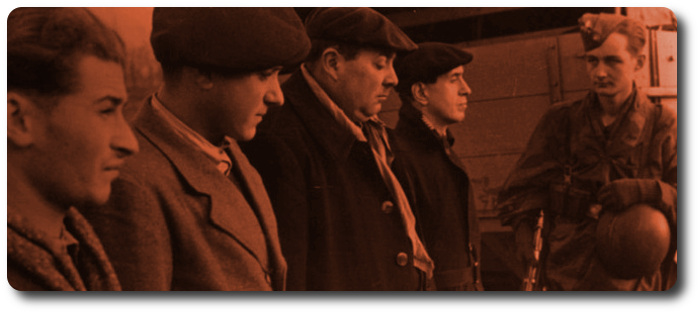Topic: Resistance

Motivating the Saboteur
A reasonable amount of humor In the presentation of suggestions for simple sabotage will relax tensions of fear.
Strategic Services Field Manual No. 3, Simple Sabotage Field Manual (provisional), Office of Strategic Services, Washington, D.C., 17 January 1944
a. To incite the citizen to the active practice of simple sabotage and to keep him practicing that sabotage over sustained periods is a special problem.
b. Simple sabotage is often an act which the citizen performs according to his own initiative and inclination. Acts of destruction do not bring him any personal gain and may be completely foreign to his habitually conservationist attitude toward materials and tools. Purposeful stupidity is contrary to human nature. He frequently needs pressure, stimulation or assurance, and information and suggestions regarding feasible methods of simple sabotage.
(1) Personal Motives
(a) The ordinary citizen very probably has no immediate personal motive for committing simple sabotage. Instead, he must be made to anticipate indirect personal gain, such as might come with enemy evacuation or destruction of the ruling government group. Gains should be stated as specifically as possible for the area addressed: simple sabotage will hasten the day when Commissioner X and his deputies Y and Z will be thrown out, when particularly obnoxious decrees and restrictions will be abolished, when food will arrive, and so on. Abstract verbalizations about personal liberty, freedom of the press, and so on, wi1l not be convincing in most parts of the world. In many areas they will not even be comprehensible.
(b) Since the effect of his own acts is limited, the saboteur may become discouraged unless he feels that he is a member of a large, though unseen, group of saboteurs operating against the enemy or the government of his own country and elsewhere. This can be conveyed indirectly: suggestions which he reads and hears can include observations that a particular technique has been successful in this or that district. Even if the technique is not applicable to his surroundings, another's success will encourage him to attempt similar acts. It also can be conveyed directly: statements' praising the effectiveness of simple sabotage can be contrived which will be published by white radio, freedom stations, and the subversive press. Estimates of the proportion of the population engaged in sabotage can be disseminated. Instances of successful sabotage already are being broadcast by white radio and freedom stations, and this should be continued and expanded where compatible with security.
(c) More important than (a) or (b) would be to create a situation in which the citizen-saboteur acquires a sense of responsibility and begins to educate others in simple sabotage.
(2) Encouraging Destructiveness
It should be pointed out to the saboteur where the circumstances are suitable, that he is acting in self-defense against the enemy, or retaliating against the enemy for other acts of destruction. A reasonable amount of humor In the presentation of suggestions for simple sabotage will relax tensions of fear.
(a) The saboteur may have to reverse his thinking, and he should be told this in so many words. Where he formerly thought of keeping his tools sharp, he should now let them grow dull; surfaces that formerly were lubricated now should be sanded; normally diligent, he should now be lazy and careless; and so on, Once he is encouraged to think backwards about himself and the objects of his everyday life, the saboteur will see many opportunities in his immediate environment which cannot possibly be seen from a distance. A state of mind should be encouraged that anything can be sabotaged.
(b) Among the potential citizen-saboteurs who are to engage in physical destruction, two extreme types may be distinguished, On the one hand, there is the man who is not technically trained and employed. This man needs specific suggestions as to what he can and should destroy as well as details regarding the tools by means or which destruction is accomplished.
(c) At the other extreme is the man who is a technician, such as a lathe operator or an automobile mechanic. Presumably this man would be able to devise methods of simple sabotage which would be appropriate to his own facilities. However, this man needs to be stimulated to re-orient his thinking in the direction of destruction. Specific examples. Which need not be from his own field, should accomplish this.
(d) Various media may be used to disseminate suggestions and information regarding simple sabotage. Among the media which may be used, as the immediate situation dictates, are: freedom station or radio, false or official leaflets. Broadcasts or leaflets may be directed toward specific geographic or occupational areas, or they may be general in scope. Finally, agents may be trained in the art of simple sabotage, In anticipation of a time when they may be able to communicate this information directly.



